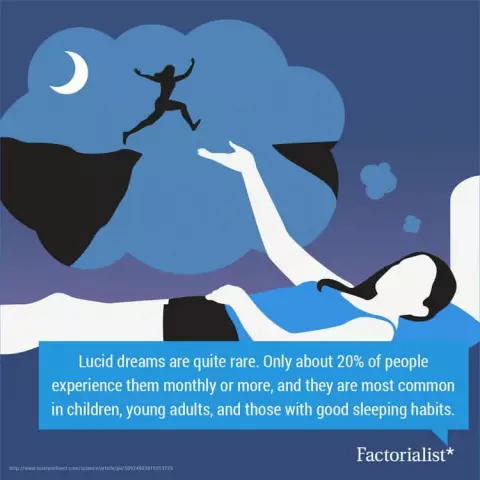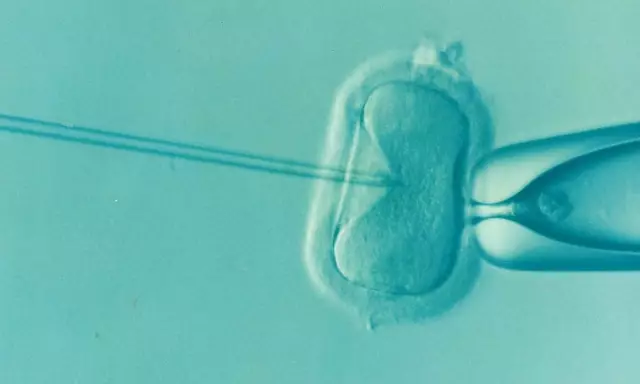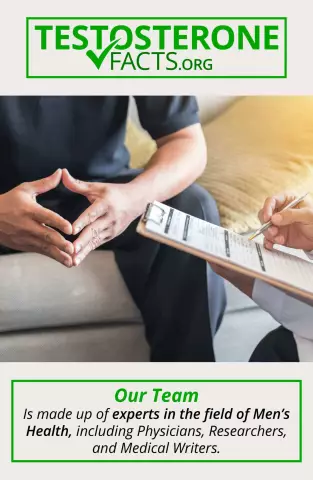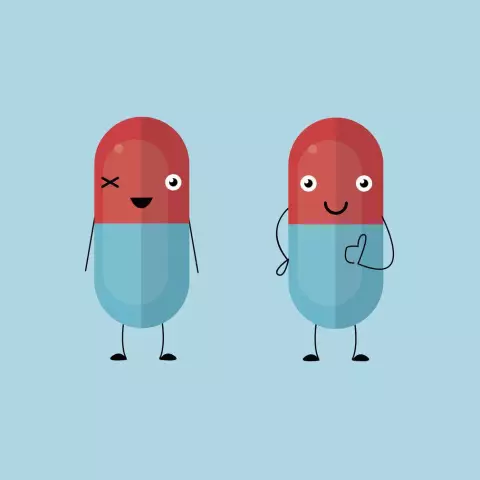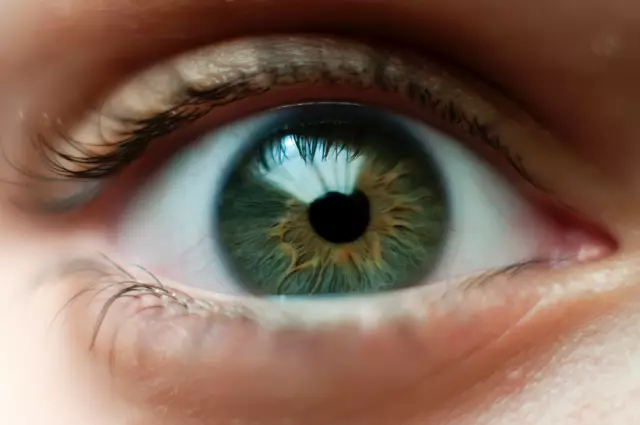- Author Rachel Wainwright wainwright@abchealthonline.com.
- Public 2023-12-15 07:39.
- Last modified 2025-11-02 20:14.
Stroke: 9 interesting facts about the disease
Stroke is one of the most common diseases: about 6 million cases of this pathology are registered annually in the world. According to medical statistics, strokes occur almost 3 times more often than myocardial infarctions. The disease is severe and has a disappointing result: mortality rate up to 40% among women and 25% among men. Many stroke patients have never fully recovered. We invite readers to familiarize themselves with some of the features that characterize this disease.
Stroke is "getting younger"
Until recently, the risk of developing the disease was strongly associated with age over 65 years. Unfortunately, now this is not the case: stroke is increasingly diagnosed not only in adults under the age of 45, but also in children, including newborns. For example, in the United States, nearly 4,000 minors experience cerebral hemorrhages every year.
With strokes in children and adolescents, the wrong diagnosis is often made, which complicates the treatment of the victims. On the other hand, the prognosis for them is more favorable than for adults: tissues in young people regenerate better, such patients are able to fully recover and lead a normal life (naturally, subject to timely receipt of qualified assistance).

Source: depositphotos.com
"Female" stroke has atypical symptoms
Women are more at risk of having a stroke than men, they are harder to suffer, and are almost twice as likely to die from the consequences. Along with general symptoms (sharp headache, numbness of half of the face, visual and speech impairments), the fairer sex often exhibits atypical signs of cerebrovascular accident. Among them:
- severe, paroxysmal pain in one arm or leg;
- a sudden attack of hiccups;
- sharp pain in the abdomen;
- severe nausea;
- sudden weakness;
- loss of consciousness for a short time;
- sudden chest pain;
- suffocation;
- cardiopalmus;
- insomnia.
Some experts associate an increase in the likelihood of stroke in women who are in menopause with the action of hormone replacement drugs prescribed to ease the symptoms of menopause.

Source: depositphotos.com
Eating tomatoes reduces the risk of developing the disease
It has been found that for tomato lovers, the risk of developing a stroke is almost halved. The fact is that these vegetables contain lycopene, a powerful antioxidant that reduces blood viscosity and reduces the likelihood of blood clots. This fact is especially pleasing: lycopene is found not only in fresh fruits, but also in their processed products (tomato juice, pasta, canned vegetables), and heating even increases its concentration in dishes.
Lycopene can also be obtained (although in much smaller quantities) from the pulp of watermelons, red and pink grapefruits.

Source: depositphotos.com
Stroke emergency care helps avoid paralysis
Violation of cerebral circulation in a significant proportion of cases leads to paralysis of the limbs, therefore, to complete or partial disability. Experts say that the severity of the consequences of a stroke and the rate of recovery of lost functions directly depend on how quickly the patient receives medical care. It is necessary to learn that if a person has a twisted face, confusion or slurred speech, or the inability to raise both hands equally, this is a reason to immediately call an ambulance.
The administration of the required drugs within 3 hours of the "shock" helps prevent the onset of paralysis or even death of the patient. For every minute of delay, the brain loses about 2 million cells, the death of which may be irreparable.

Source: depositphotos.com
Taking NSAIDs increases the risk of stroke
Many of our compatriots are prone to uncontrolled intake of non-steroidal anti-inflammatory drugs. The habit of using analgesics for any pain is supported by very aggressive (and not always fair) advertising. At the same time, most people have no idea that NSAIDs increase the risk of thrombosis and stroke.
In this case, the tendency to self-medicate can play a very unpleasant joke with a person. Of course, it is necessary to keep painkillers in the house, but when choosing them, you should consult a doctor and undergo an examination to assess the state of your cardiovascular system. And, of course, you shouldn't use them for any ailment.

Source: depositphotos.com
The consequences of the "blow" can be healed after many years
For a long time, it was believed that the long-term consequences of stroke are incurable. The experience of using one of the methods of therapy - hyperbaric oxygenation - gives hope to patients who suffered from cerebrovascular accident several years ago.
The method consists of exposing patients to oxygen supplied under pressure. It is known that already after several procedures, patients begin to recover lost functions (limb mobility, intelligible speech, etc.). The studies were carried out mainly on people suffering from the consequences of strokes for 2-3 years, but there is evidence that the method is effective for patients with more long-standing injuries.

Source: depositphotos.com
Depression is a contributing factor to stroke
According to the results of a survey of more than 300 thousand patients, the risk of stroke for persons with a tendency to depression is 45% higher. The reason for this phenomenon has not been clarified. Scientists have suggested that people who are gloomy, who take life's troubles too seriously, are more prone to unhealthy habits (overeating, smoking, refusing to exercise) than funny people. In addition, such people endure stress more heavily, which leads to more significant wear of the cerebral vessels.

Source: depositphotos.com
Strokes are more common in winter
Statistics show that the largest number of strokes (including fatal ones) occurs in the cold season. For people belonging to the older age group, a 1 ° C decrease in air temperature increases the risk of developing cerebrovascular accident by almost 4%. Scientists believe that this is due to an increase in blood pressure, compression of the lumens of blood vessels, thickening of blood and difficulty in pumping it by the heart, which occur during a cold snap.

Source: depositphotos.com
Sleep disturbances indicate the likelihood of stroke
Phenomena such as snoring or obstructive sleep apnea are risk factors that increase the likelihood of having a stroke. With violations of this kind, the sleeping brain begins to suffer from a lack of oxygen. In addition, this condition leads to periodic heartbeat failures, sharp fluctuations in blood pressure, which can result in cerebrovascular accident. For people who have already suffered a stroke, sleep disturbances are dangerous with the possibility of a second "blow".

Source: depositphotos.com
Stroke is a serious illness that often leads to disability or death of the patient. The better those around them are aware of its features, the higher the likelihood of saving a person with whom cerebrovascular accident has happened.
YouTube video related to the article:

Maria Kulkes Medical journalist About the author
Education: First Moscow State Medical University named after I. M. Sechenov, specialty "General Medicine".
Found a mistake in the text? Select it and press Ctrl + Enter.


